WAINGMAW & MYITKYINA, Kachin State — Holding her eight-month-old baby close to her chest, young mother Roi San chased after her other child, a toddler running in front of her. The toddler ran barefoot across the ground.
Married at 16, the 20-year-old had two miscarriages before giving birth to her two children. Roi San is one of the 708 people living in Zilun Baptist camp for internally displaced persons (IDPs) in Kachin State capital Myitkyina.
The Irrawaddy visited three camps in Kachin State’s Waingmaw and Myitkyina townships last month —St. Joseph Mai Na, Zilun and Madaing—and met with displaced families fleeing conflict between the Myanmar Army and the Kachin Independence Army (KIA) since 2011. The ongoing conflict has displaced more than 100,000 persons in Kachin State to date.
Women and children are a common sight in IDP camps as men leave to work while wives and daughters tend to take care of their children, younger siblings and household chores during the day. At St. Joseph Mai Na Camp, sheltering 1,472 people, nearly 200 are under five years old.
Many mothers who talked to The Irrawaddy said they were terrified of becoming pregnant again. Reproductive issues are seldom addressed as a priority in IDP camps, but poor family planning adds hardship to the desperate situation of the families living there, as they struggle to arrange childcare and feed extra mouths.
According to Htoi Gender and Development Foundation, which has been working with women in the region—both in IDP camps and local villages—advocating for reproductive rights and awareness of gender issues since 2011, women living in displaced persons camps in particular need birth pacing and family planning. In these contexts, parents are often unable to provide enough nutrition to their children while struggling to earn money for everyday expenses and rely on donors to live.
“Population increase is not a problem. The problem is that an increasing number of children do not get access to the food, nutrition, and education that they deserve,” Nang Pu, founder of the Kachin State Women’s Network and the director of Htoi, told The Irrawaddy.
In an email to The Irrawaddy on Wednesday, the United Nations Population Fund (UNFPA) said it had already reached out to 10,800 women and girls living both in camps and in host communities by conducting awareness sessions on family planning, as well as other sexual and reproductive health and rights, including different types of contraceptives, pregnancy-related complications and gender-based violence.
Besides the UNFPA’s provision of contraceptive choices and family planning options, women and girls living in IDP camps where there are government health workers can request contraceptive pills and injections from midwives and nurses. A health worker from Madaing camp in Waingmaw Township confirmed this to The Irrawaddy during the visit to the camp.
According to the UNFPA, 17.9 percent of women in Kachin State have an unmet need for contraceptives. Although they would like to access them, they cannot due to barriers such as cost, supply, logistics and cultural norms. Countrywide, this figure is slightly lower: 16 percent of women in Myanmar want contraceptives, but have been unable to obtain them.
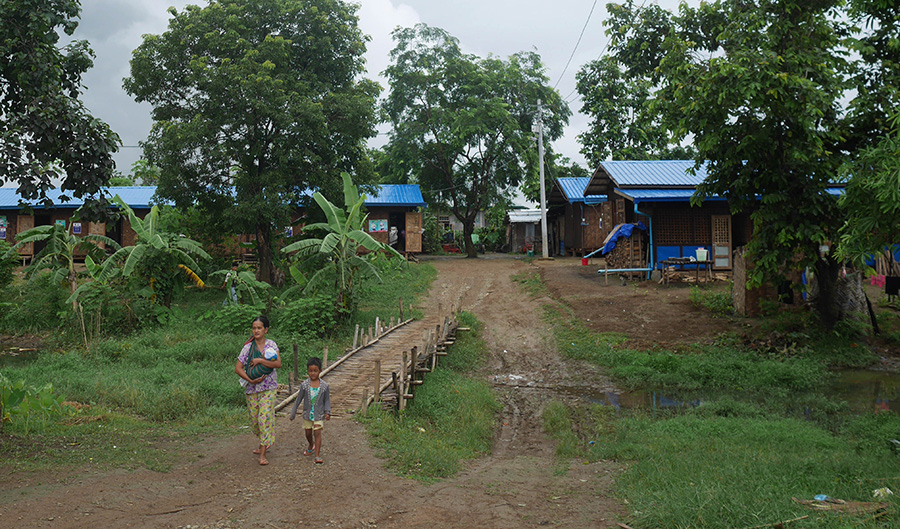
“Women and girls need to know the choices that are available to them. But they also need to be empowered to make the choices they want for their health and their future,” Janet Jackson, UNFPA’s representative for Myanmar, told The Irrawaddy in an email.
A key component of the gender equality work is, UNFPA said, to engage men and boys in family and gender-related issues that range from family planning and contraceptives to gender equality and domestic violence. It said that conducting such sessions on Sundays could increase male participation in discussion as families often go to the session together after visiting church.
However, including men is still a difficulty as they are often absent or think family planning does not concern them, and they tend to leave the discussions, Htoi’s Nang Pu said.
“Even when women know what they should do for birth control, they can’t always convince their husbands,” Nang Pu said, referring to experiences that mothers had shared with her.
Cultural and religious concerns in the community are also hindering her efforts to raise awareness, Nang Pu said, explaining that community leaders often misunderstand her intentions and think she is discouraging population growth among the ethnic community.
Vulnerable populations are most affected by war—women, girls, and the elderly—she said. “Women are the ones who always suffer most but are also the most resilient.”
Acknowledging the strength of women—often forgotten and overlooked at the tables of peace talks—The Irrawaddy highlights the struggles of six displaced mothers.

Living at the Zai Awng camp on the China-Myanmar border since 2011, 22-year-old mother of three Pawk Seng Pang had to flee from the camp in January this year after Myanmar Army troops attacked the KIA’s Lai Hpawng outpost. The young mother gave birth to the girl she is holding in the picture on the road during her flight from Zai Awng to Mai Na camp in Waingmaw Township.
The young mother discovered in 2015 that her husband had infected her with HIV. Even though she took contraceptives to prevent pregnancy and, thereby, the risk of mother-to-child transmission of HIV, she stopped taking them due to the heavy bleeding that was a side effect of contraceptives. She became pregnant with her youngest daughter. She is now hoping that her six-month-old is not HIV positive. The couple has been taking antiretroviral therapy (ART) to treat the HIV infection.
When asked what makes her resilient to so many hardships, she looked at her daughter and responded, “My children are the reason I’m still alive.”
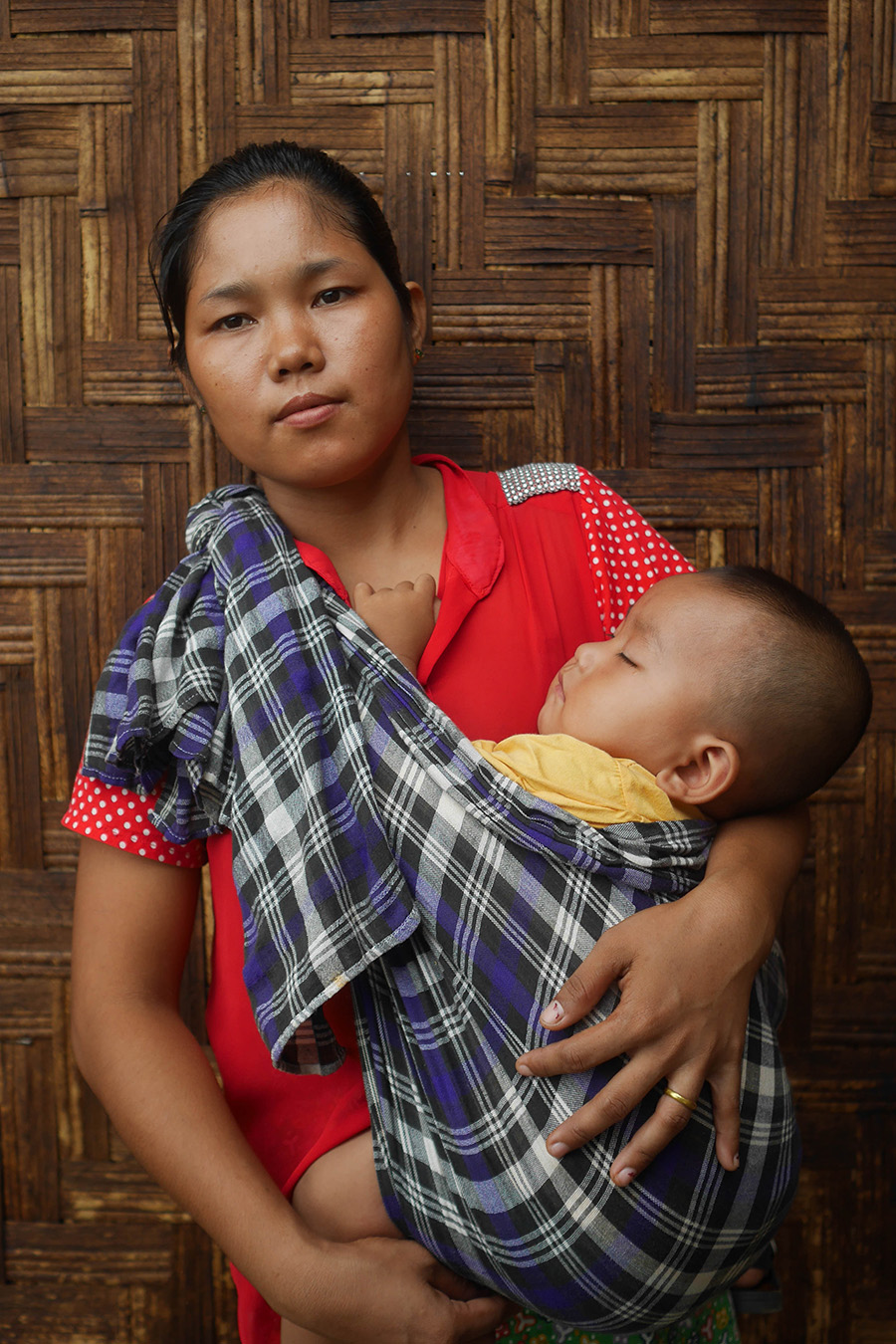
Originally from Nam San Yang village close to the KIA stronghold of Laiza, 27-year-old mother of two Htusan has been displaced to Mai Na camp for six years now. She gave birth to her first child when she was 18 years old. Holding her 15-month-old boy, she said: “Life is hard. And we can’t provide our children with a good education.” Living hand-to-mouth and fending for the family, her husband works as a driver outside of the camp.
“I also want to work outside the camp like my husband, but there is no one who would take care of my two children while I am not around,” Htusan told The Irrawaddy.
Due to the difficulties she and her husband have been facing in the camp, she is considering not having another child.
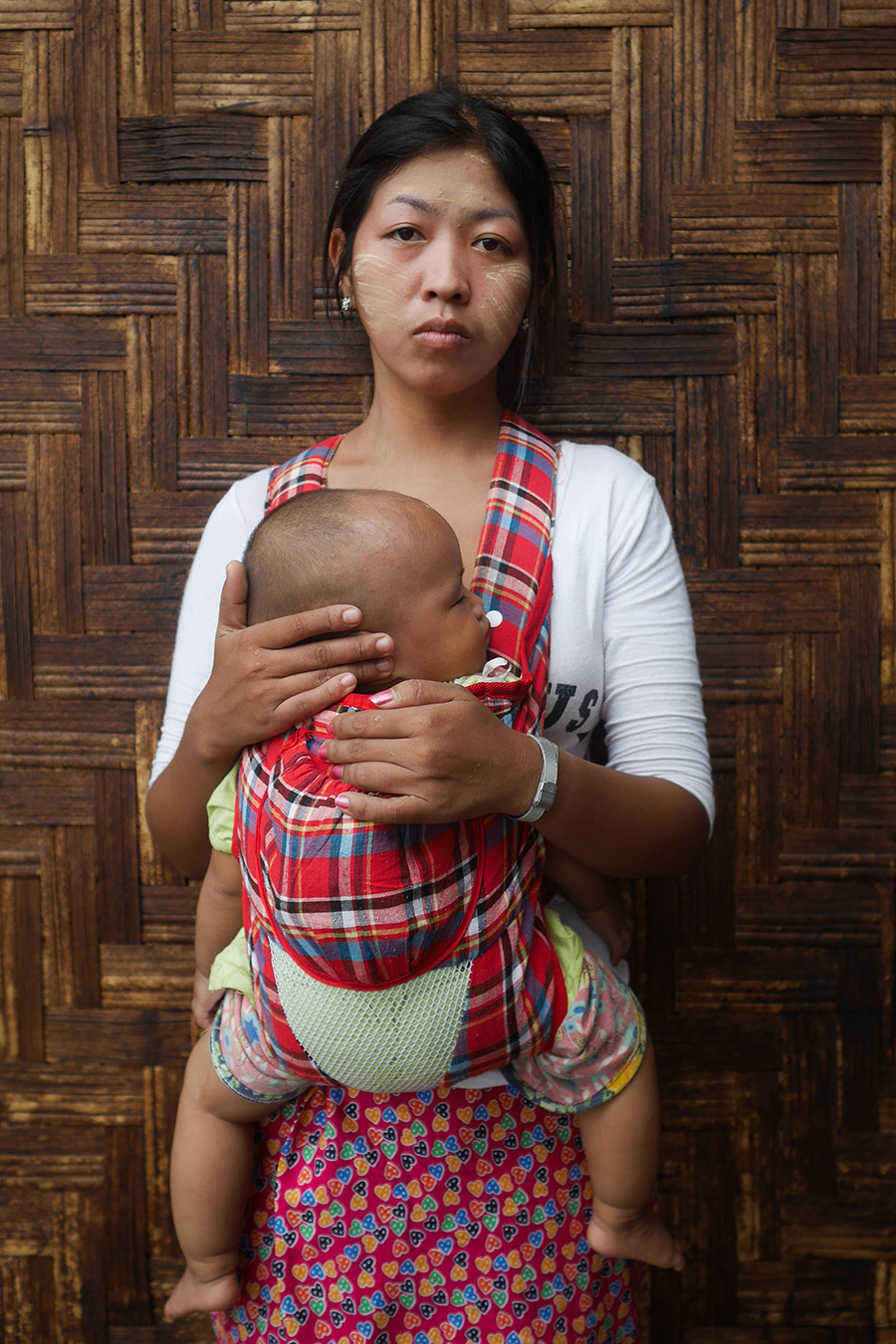
The 27-year-old mother of three Marip Nu Ja has been displaced since 2011. She got married when she was 18 in 2008, and her first child is now nine. Holding her nine-month-old daughter, Marip Nu Ja said long-term displacement fills their lives with uncertainties and insecurities.
“I’m afraid that life will get more and more difficult when the children grow up,” she said.
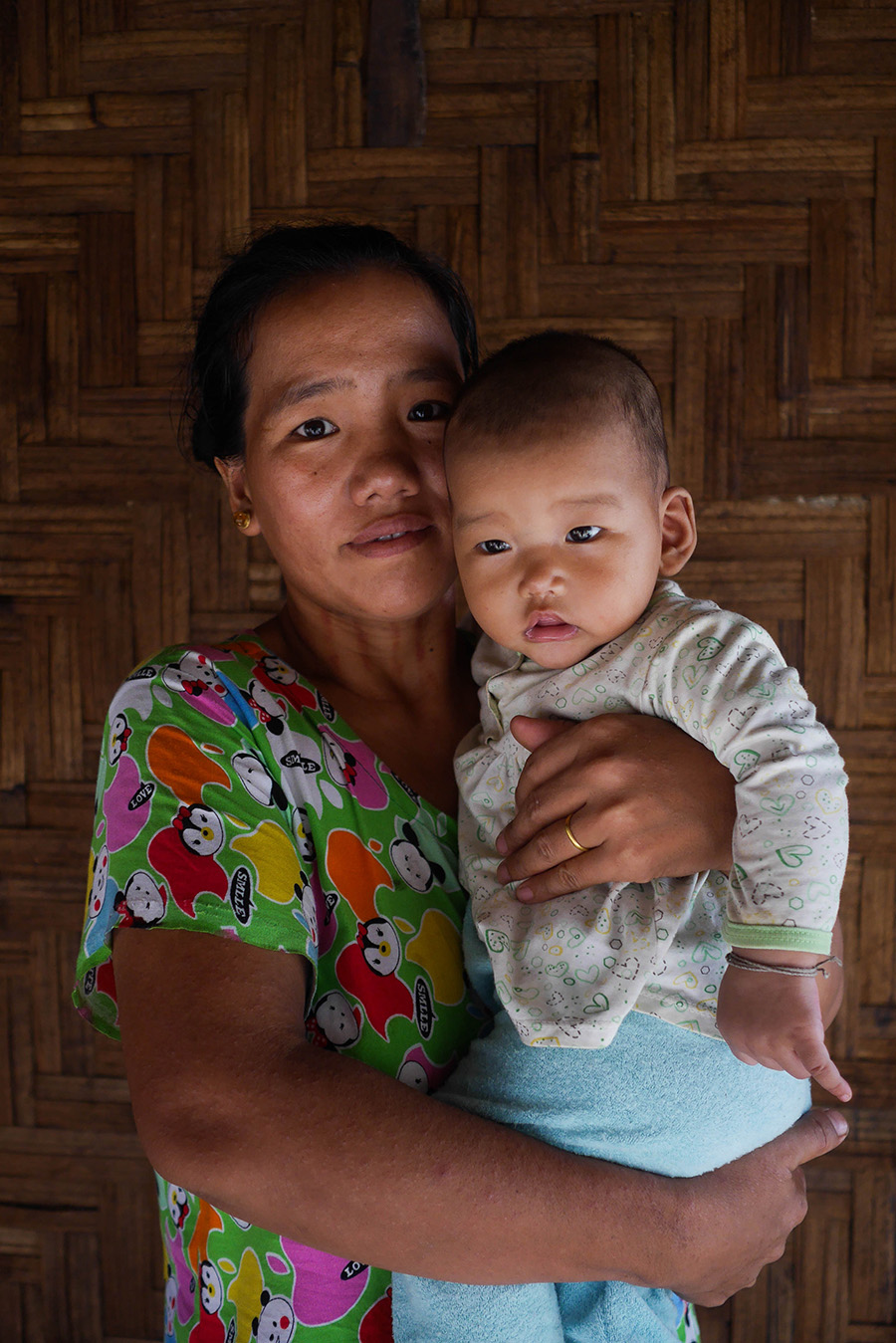
Htu Ling, a 33-year-old mother of four, gave birth to her youngest daughter just five months ago in Mai Na camp where she has been living for six years. She gave birth to three of her older children in her native Nam San Yang village—a 2-hour drive from Laiza—before fleeing the war. Since her second pregnancy with twins ten years ago, she has decided to use birth control, saying that she wanted to be a dedicated mother to her older children. Having heard that long-term birth control medication could increase her risk for ovarian cancer, Htu Ling and her husband decided to have another child.
She said she felt guilty for using contraception, since the church taught her that it is sinful and immoral to prevent “a new life” from being created. “I know that I have sinned and I will take it with me. But my children will suffer less this way,” she said.
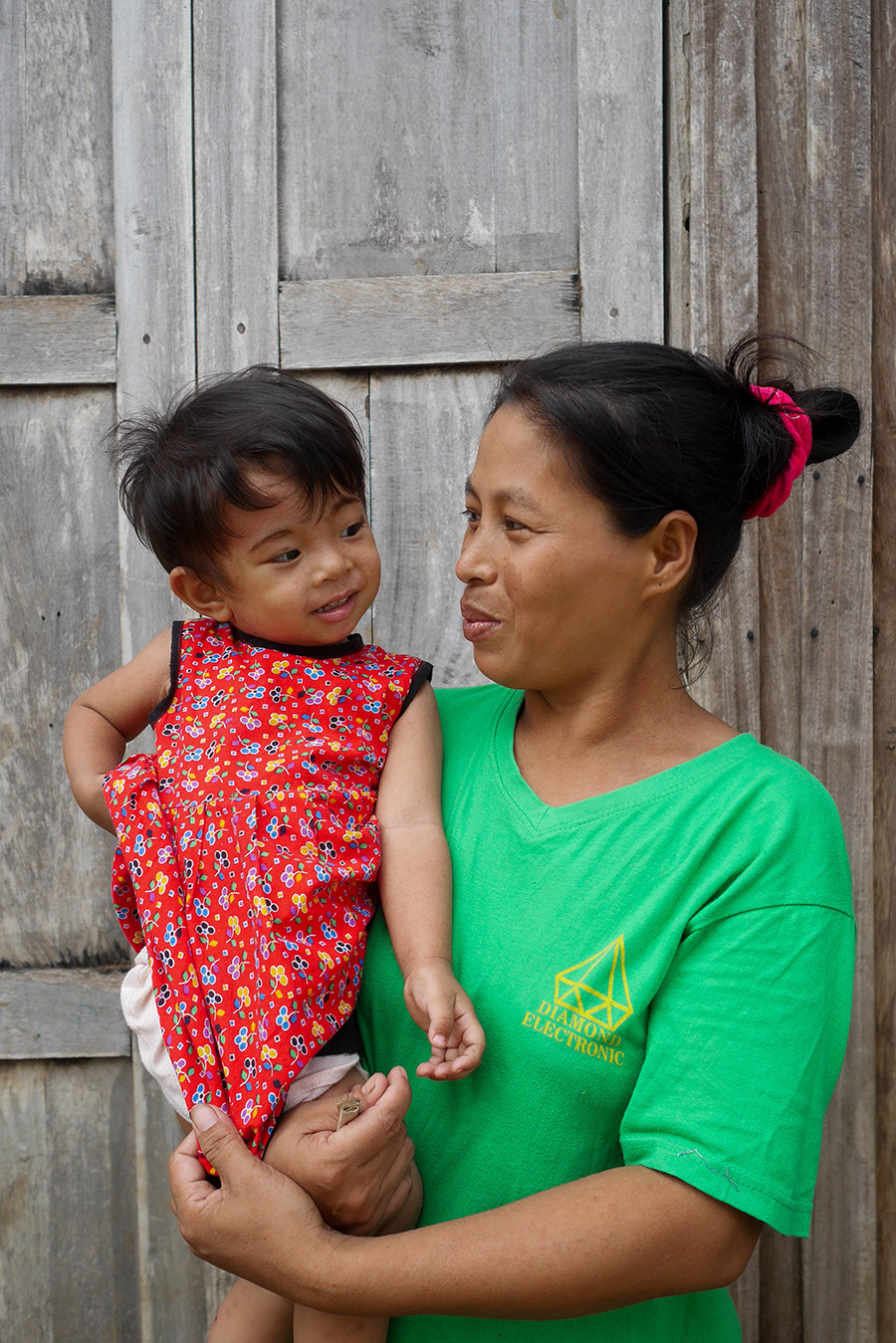
Thirty-four-year-old mother of three Dai Tse moved to Madaing camp in Waingmaw Township from Zai Awng camp in 2015. She gave birth to her last child last year in Madaing camp. She wants to have a contraceptive implant in her arm as a preferred method of long-term birth control but the cost is preventing her from doing it.
“One of the women here told me that it cost her 55,000 kyats (US$40). It is equal to the cost of one month’s food for my family,” Dai Tse said.
“I don’t want to give birth to more children if we have to continue living like this. It’s like letting them feel they are living in hell after they are born.”
Seeing less and less hope of returning to her native land, Dai Tse has learned skills in sewing and has been thinking of starting a new life, integrating into the host community in Waingmaw Township. However, relationships with the locals in the area have been strained.
“People discriminate me for living at the camp. I don’t want to hear the word ‘IDP’ anymore. If that word is a stain, I want to wash every part of my body. I wish that the storm would take it from my body,” she said.
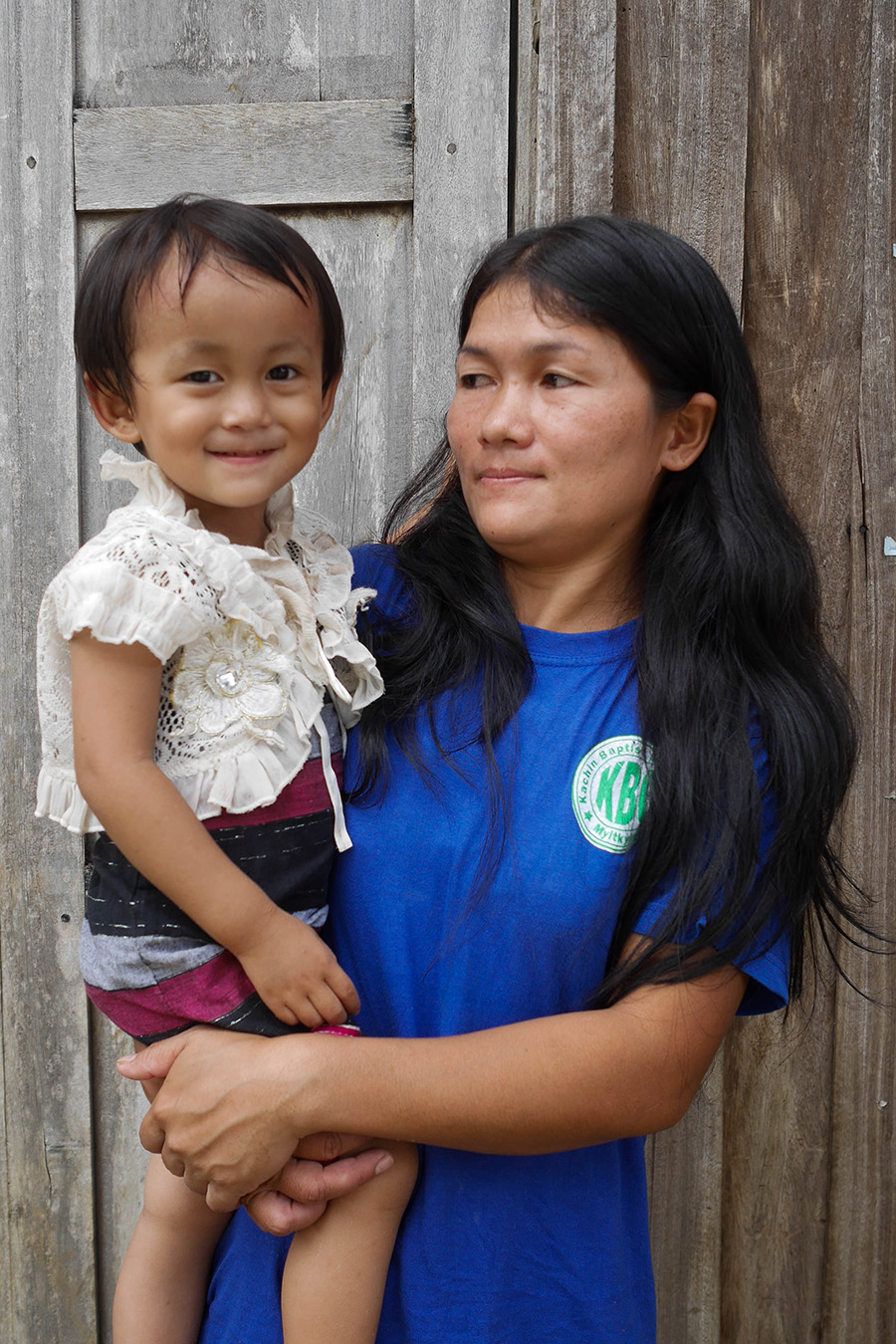
Je Muk is a 32-year-old mother of two girls; she is currently taking hormonal birth control since both she and her husband could not go work outside of the Madaing camp and have to rely on donors to take care of their children. She is worried that hormonal birth control pills will have unpleasant side effects and hopes for a safer, alternative family planning option.
Je Muk said that her two-year-old daughter has a partial hearing impairment. She wants to go outside of the camp to be able to find a job so that she can save some money to treat her younger daughter’s hearing loss.

















